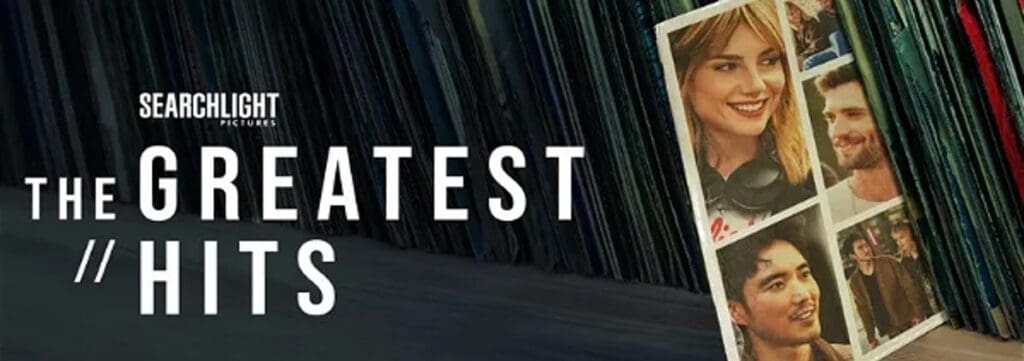
Plot: Harriet finds art imitating life when she discovers certain songs can transport her back in time – literally. While she relives the past through romantic memories of her former boyfriend, her time traveling collides with a burgeoning new love interest in the present. As she takes her journey through the hypnotic connection between music and memory, she wonders – even if she could change the past, should she?
Review: Music connects people in ways beyond sharing similar tastes in genre or artists. Music can evoke memories of times and places where significant events have occurred. Whether it be a happy or tragic memory, music can take us back whether we like it or not. That is the central conceit of The Greatest Hits, which literally takes the magic of music as it pushes and pulls the main character into moments from her relationship with her deceased boyfriend. It is a wonderfully original way to tell a story about love, grief, and moving on through a soundtrack of classic tunes, new tracks, and everything in between. Directed by Ned Benson and featuring solid turns from Lucy Boynton, Justin H. Min, and David Corenswet, The Greatest Hits has a lot of solid elements going for it but struggles to get past the genre’s cliches.
At the beginning of The Greatest Hits, we meet Harriet (Lucy Boynton), a music producer living an isolated life with a serial killer-esque wall of photos arranged in a timeline of the last few years. As she puts on a vinyl record, we see her transported back in time to a moment when she heard that specific song during a moment in her relationship with Max (David Corenswet). This sonic-induced travel is never quite explained but originated from a head injury sustained in the car accident that killed Max. Now, without any way of stopping, Harriet travels into the past when a musical cue hits her ears. Working in a quiet bookstore and walking around with noise-canceling headphones, Harriet’s only connection to the outside world is her best friend, Morris (Austin Crute), and a support group led by Dr. Evelyn Bartlett (Retta). Obsessed with finding the right song that can help her save Max’s life, Harriett is stuck. That is until she meets David.
David Park (Justin H. Min) recently lost his parents and is himself stuck, unable to let them go. David stumbles into the same support group as Harriet, and the pair immediately connect. Harriet feels she is cheating on Max and hides from David even though she really likes him. Even as she keeps traveling back to past moments with Max, Harriet wants to try and see if she can move forward with David. The will they/won’t they dynamic is short-lived as the film pushes Boynton and Min together before pulling them apart and back together, all to an eclectic soundtrack of everything from Roxy Music to the Kars 4 Kids jingle. It is an interesting concept and way to showcase the haunting and healing power of memory and music, but it repeats the same tropes repeatedly for one hundred minutes.
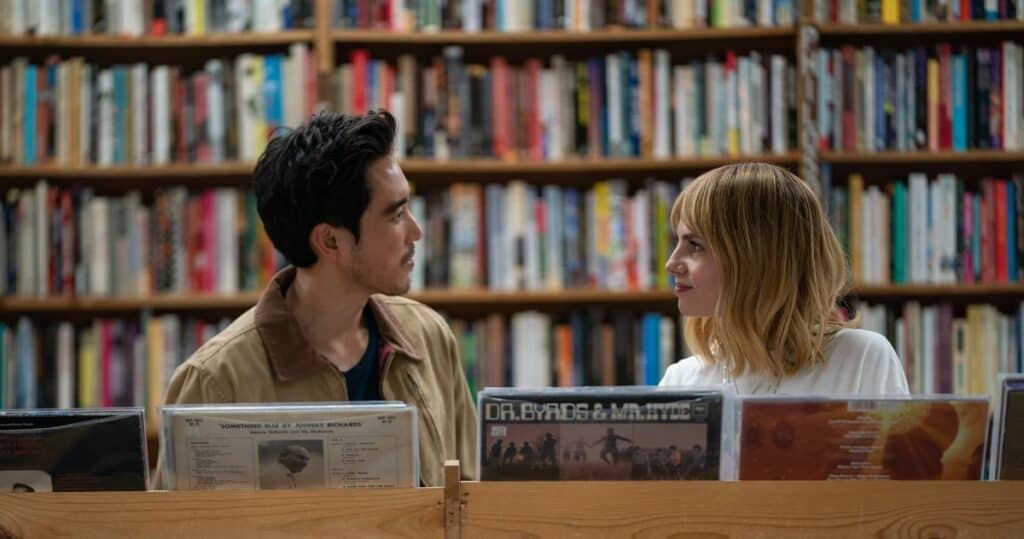
Movies heavily reliant on music as a part of the plot are nothing new. From High Fidelity to Sing Street, appreciating music and how it makes you feel has long been a staple of stories like this, but it is the chemistry between the characters that we invest in. Lucy Boynton, who was phenomenal in the aforementioned Sing Street and Bohemian Rhapsody, does what she can with Harriet’s reluctance to move on as she cites Max as the love of her life. In the flashback sequences and even commentary from Morris, the relationship between Harriet and Max is not robust enough to say they were soulmates. The lack of chemistry between Boynton and Corenswet doesn’t help matters either. Boynton does have an effortless connection to Justin H. Min, and that pairing makes it hard to root for Harriet to save her dead boyfriend. The struggle between these two romantic interests when one is clearly better suited than the other wastes much running time. I hoped seeing David Corenswet would reaffirm his casting as the new Superman, but this role is barely more than a glorified cameo.
Writer/director Ned Benson, best known for his three film debut The Disappearance of Eleanor Rigby, knows how to craft a romantic concept rooted in a blend of reality and fantasy. That film, which told a story from two distinct perspectives, offered a refreshing take on the genre that kept the formula intact but delivered it without being subjected to cliche after cliche. That same approach is missing in The Greatest Hits, which feels more reliant on tugging at your heartstrings without earning the emotional weight of it. The Greatest Hits has multiple areas where it seems that key scenes were cut to keep the running time under two hours, leaving me wondering why the story resolves itself so abruptly in the third act. I wanted to fall in love with this movie, but then it kept taking things in an all too familiar direction.
The most unexpected element of The Greatest Hits is the two musical cameos in the film’s final minutes, one from a band in concert and the other from Nelly Furtado. I wanted to know more about Harriet and the depth of her grief, but instead, Ned Benson seems content to use lens flares and clever editing to keep shoving her back in time without giving much explanation or rationale. Sure, time travel is fictional, but films usually set rules for how and why it is happening. Here, time travel instead serves as a convenient plot device to string together a bunch of seemingly disparate scenes to try and tell a cohesive story. The Greatest Hits was almost a good movie if it could have plumbed the depths of these characters a bit more. Instead, it is a forgettable romance with one of the best soundtracks in recent memory.


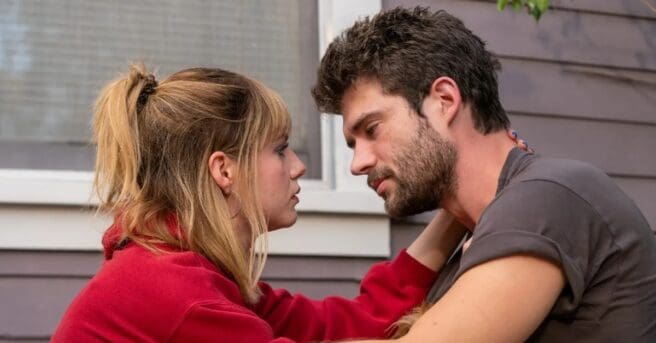




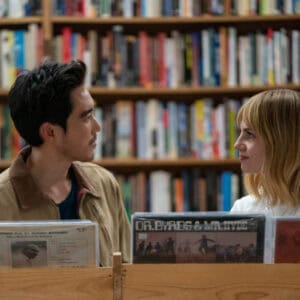
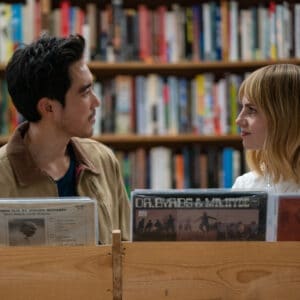




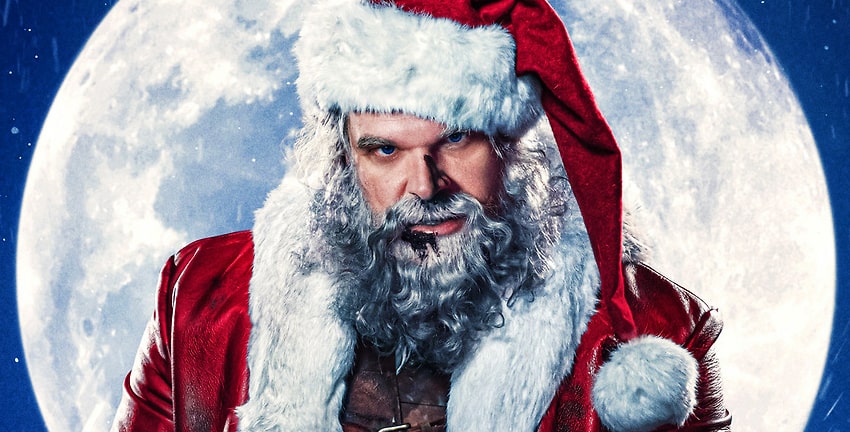


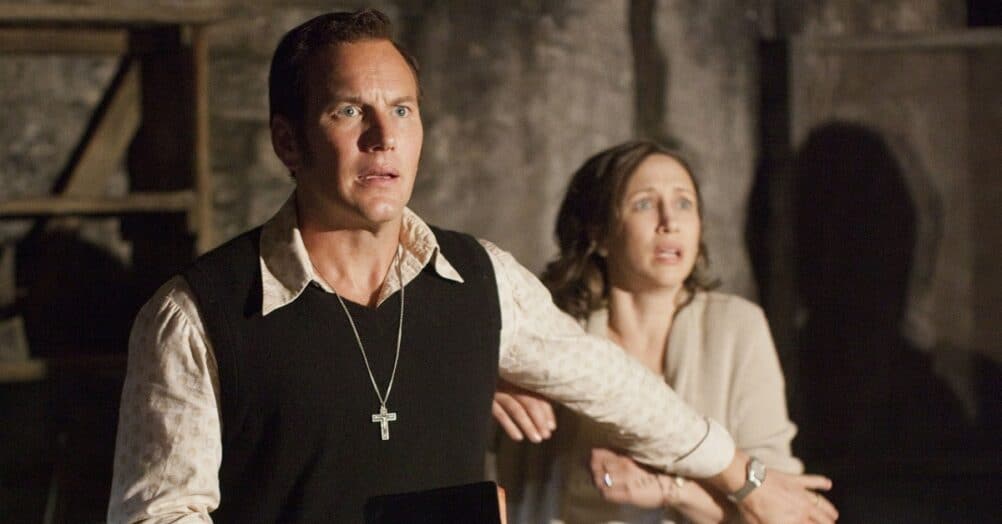



Follow the JOBLO MOVIE NETWORK
Follow us on YOUTUBE
Follow ARROW IN THE HEAD
Follow AITH on YOUTUBE